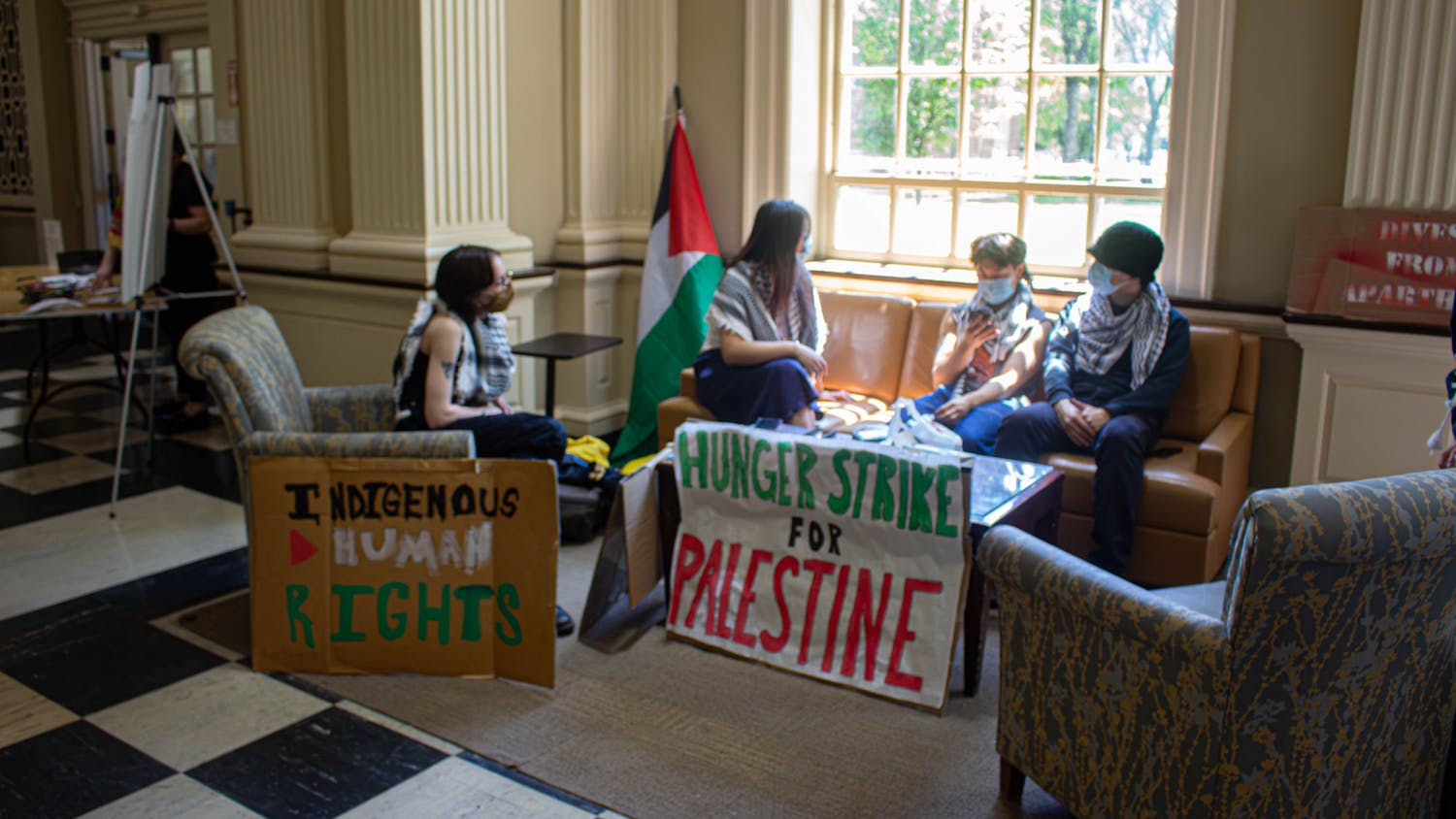Student Assembly and Kappa Kappa Kappa fraternity hosted a mock Committee on Standards hearing Monday night in an attempt to better acquaint students with COS procedures.
Student Body President Noah Riner '06 played the role of a student on tiral for submitting an essay from the website "freeessays.com." Riner claimed he had used the essay as part of his research and turned it in by accident, despite the fact that his name was on the header of each page.
Two faculty members, two students and the elected COS chair comprised the five-person committee in charge of dealing with honor and conduct violations. Accused students typically meet with an adviser to go over their arguments before going before the committee.
Once the hearing began, Riner was given a chance to make an opening statement before committee members peppered him with questions about the packet of materials they were given during an executive session. The distributed packet included Riner's request to have a closed hearing, the Internet paper he originally submitted and the paper he wrote himself and submitted after being accused of plagiarism.
Committee members asked Riner a number of questions, including why he put his name at the top of the plagiarized "research paper," whether anyone could attest to the fact he had written his own paper before he turned in the false one and how he typically goes about researching papers.
Director of Undergraduate Judicial Affairs April Thompson said that normally this part of the hearing takes hours.
After the questioning ended, Riner said he plagiarized by mistake in his closing statement. The committee then moved on to a deliberation phase, during which they decide whether the accused student is actually responsible for violating the academic honor principle without looking at factors like character or intent.
If the student is found responsible, the committee then moves on to decide what punishment will be given. At this point, the committee is given access to the student's history of honor violations for the first time.
The standard punishment for an honor-principle violation is a four-term suspension. The committee looks at a list of similar previous cases before deciding to give a student up to eight terms of suspension -- usually for those they believe are lying -- or, at the light end, a warning or reprimand.
Riner was found responsible, and four of the seven audience discussion groups decided to suspend him.
Thompson took time after the hearing to discuss COS policy in general. She said COS does not have the authority to look through a student's BlitzMail or library accounts, but it does have the right to discipline students for conduct violations committed off campus.
"You're Dartmouth here. You're Dartmouth wherever you are," Thompson said. "If you get a DUI in California, and we find out about it, you could be in trouble."
Only the most serious cases go to the COS, while lighter cases go to a student's class dean, Thompson said. Topping the list of "serious cases" are honor violations, DUIs, sexual abuse and fights.
"If your only option in an altercation is to hit -- hit and leave," Thompson said. "If you engage in fighting, you will find yourself sitting across from this table."
The approximately 40 students present were also given a chance to ask questions of committee members, including how the accused's intent factors into their decisions.
Kristen Wong '06, a student member of COS, stressed that every student is responsible for knowing what constitutes an honor principle violation.
"We get a lot of 'I didn't know, I didn't know,'" Wong said. "But stupidity is not a defense."
Thompson ended the night by urging anyone with questions about COS to apply for a position on the committee.



